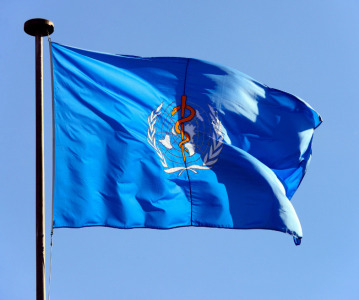Global advancements in the diagnosis and treatment of rare diseases: Rare Disease Day 2024
.png)
Rare Diseases Day is celebrated on the 29th February 2024 and represents the plight of rare disease patients to gain diagnosis and access to suitable treatment.
Rare diseases affect around 300 million people all over the world, 36 million in just the EU, representing a large threat to people's health, and an area that generally lacks the level of knowledge, understanding, and investment that other fields of medicine receive.
Over the past few years, governments, pharma companies, research organisations, and advocacy groups have been working to increase awareness of the burden of rare diseases and encourage more research into the field.
Diagnosis
Part of the difficulties surrounding treating rare disease is in the initial identification of a rare disease. More than 80% of rare disease are of genetic origin, making them more intricate and difficult to understand. Currently, we do not have enough understanding of the human genome, or data on this, to be able to easily identify rare diseases.
By collecting more genomic information from around the world, such as in expanded genomic studies on varied populations, and using innovative genomic technologies to better understand the mechanisms of diseases, researchers are hoping to be able to make this path to identification more efficient.
One university in The Netherlands, concerned by the timeline of 4–5 years for rare disease patients to receive a diagnosis, has started a project whereby they hope to bring this wait time down to merely a single week.
Radboud University Medical Centre is hoping to use a blood test to identify the rare disease of a patient.
Lisenka Vissers, part of the Department of Human Genetics and Radboudumc Research Institute for Medical Innovation, stated: “The focus of our research is to find the best way to molecularly diagnose patients with a rare genetic disease. Our ultimate goal is that this is a rapid diagnosis, obtained in a least-invasive way, but also cost-effective for our healthcare system”.
The team are proposing to achieve this using the latest in sequencing technology: Long-read HiFi. This technology sequences tens of thousands of base pairs to gain a deeper insight into the genome, compared to standard genetic tests. This enables the researchers to sequence large sections of the human genome that were previously inaccessible, meaning that they are much more likely to be able to identify the specific genetic cause of the disease, without multiple rounds of inconclusive testing.
By reducing the diagnostic time for rare disease patients, they can have access to treatment far sooner, improving their quality of life and health outcomes.
Treatment
We have seen an increase in the number of orphan and novel drug approvals from the US FDA in 2023, including Elfabrio for the treatment of Fabry disease from Chiesi Global Rare Diseases and Protalix BioTherapeutics, Efanesoctocog alfa for Haemophilia A from Sanofi, and Jaypirca, used to treat Mantle cell lymphoma, developed by Eli Lilly to name but a few. These approvals show how effective the orphan drug designation ruling is for encouraging the development of drugs for rare diseases, and has gone a long way to demonstrating the importance of doing so for many pharmaceutical companies.
Now, the USA are looking into further legislative developments that can help to progress rare disease research and ultimately help patients of rare diseases. This Rare Diseases Day the House of Energy and Commerce Committee are holding a congressional hearing, aptly named ‘Legislative Proposals to Support Patients with Rare Diseases’, to review 18 legislative proposals that aim to support patients living with rare diseases. The hearing is an integral step in the process of legislature becoming entrenched in the law.
The proposals include the Better Empowerment Now to Enhance and Improve Treatments (BENEFIT) Act. Part of this Act requires the US FDA to include information on how patient experience data was collected and used in the review process when undergoing a risk-benefit analysis in the framework for a new drug application. Patient centricity is becoming a key consideration in the development of new drugs, and this is especially important when considering rare diseases.
Other legislative programmes to be discussed include the Accelerating Kids Access to Care Act, Innovation in Pediatric Drugs Act, and the Providing Realistic Opportunity To Equal and Comparable Treatment for (PROTECT) Rare Act, among others.
Sources:
1. Outsourcing Pharma. The race for answers: How a Dutch university is reducing time to identify rare diseases. [Date accessed 29/02/2024]. www.outsourcing-pharma.com/Article/2024/02/29/Radboud-University-finding-the-best-way-to-diagnose-rare-diseases
2. Parent Project Muscular Dystrophy. Breaking news: rare disease day congressional hearing to address the benefit act. [Date accessed 29/02/2024] www.parentprojectmd.org/breaking-news-rare-disease-day-congressional-hearing-to-address-the-benefit-act/
3. Congress.Gov. Legislative Proposals to Support Patients with Rare Diseases. [Date accessed 29/02/2024] www.congress.gov/event/118th-congress/house-event/116902?s=1&r=21
Hear more about rare disease research in this podcast.
Related News
-
News Pharmaceutical industry supports COP28 health stance in joint statement
As COP28 takes place over this week in Dubai, UAE, several bodies in the pharmaceutical and health industries have come together to announce support of key movements in sustainability in the sector, and to recognise sustainability as a health issue.&nb... -
News Biden backs Cold-War measures to shore-up medical supply chains
In a recent strategy to combat rising inflation and the cost of living crisis, President Joe Biden has invoked a Cold War-era act to increase investment in a selection of medicines and supplies. -
News CPHI Podcast Series: What does the changing US Pharma market mean for industry and patients alike?
In this week's episode of the CPHI Podcast Series Lucy Chard, Digital Editor for CPHI Online is joined by James Manser to discuss the political and market changes in the US pharma field. -
News Which 10 drugs are open to price negotiation with Medicare in the USA?
The Centres for Medicare & Medicaid Services, under the Biden administration in the USA, has released a list of the 10 drugs that will be open to price negotiations as part of the new legislation under the Inflation Reduction Act (IRA). -
News 10 Major Drug Approvals So Far in 2023
Last year, 37 novel drugs were approved by the FDA, this was a high number for such a category, and covered many fields including oncology, demonstrating how promising further research is, and how it is only continuing to build. To date, there are alre... -
News Novartis agrees for copies to be made of cancer drug to reach poorer countries
Novartis signs agreement with MPP to have generics of it's leukemia drug made so that it can be more easily distributed to the world's poorer countries. -
News CPHI Podcast Series: outsourcing and manufacturing trends
Listen to the CPHI Podcast Series this June to hear Gil Roth of the PBOA speak with Digital Editor Lucy Chard about the biggest trends and topics to watch in pharma outsourcing and manufacturing at the minute. -
News New WHO health emergency guidelines expect full transparency from Big Pharma
The WHO are proposing a new set of pandemic guidelines to set out how future global health crises should be handled.
Position your company at the heart of the global Pharma industry with a CPHI Online membership
-
Your products and solutions visible to thousands of visitors within the largest Pharma marketplace
-
Generate high-quality, engaged leads for your business, all year round
-
Promote your business as the industry’s thought-leader by hosting your reports, brochures and videos within your profile
-
Your company’s profile boosted at all participating CPHI events
-
An easy-to-use platform with a detailed dashboard showing your leads and performance







